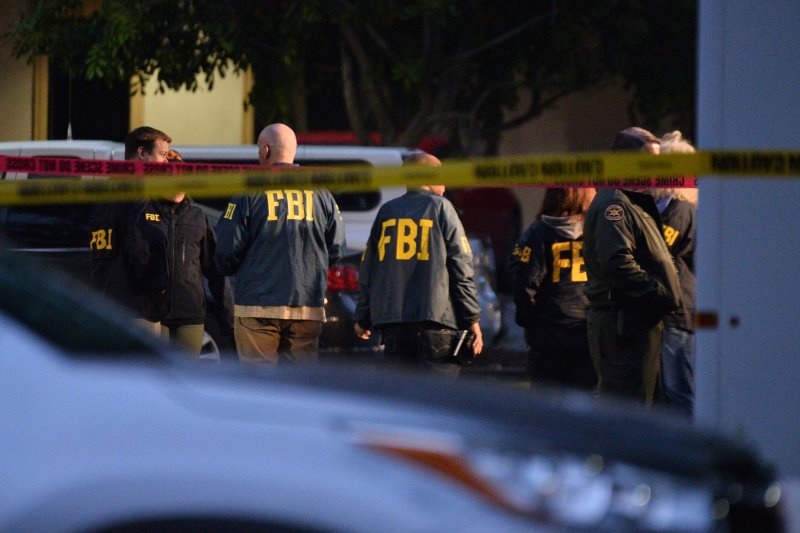Monday's report showed the homicide and violent crime rate in the United States declined in 2018, but cases of rape continued to increase. File Photo by Jim Ruymen/UPI |
License Photo
Sept. 30 (UPI) -- Violent crime overall in the United States has fallen by 4 percent, continuing a substantial decline since the 1990s, but the number of rapes have trended in the other direction, the Federal Bureau of Investigation said Monday in its annual assessment.
The statistics are detailed in the bureau's Uniform Crime Report, which accounts for offenses in 2018.
The national crime rate -- the rate of property and violent crimes tracked by the FBI -- fell 6.5 percent and property crime dropped by about 7 percent. The new report marks the 17th straight year in which both metrics declined.
The U.S. homicide rate fell by nearly 7 percent to about 5 offenses per 100,000 persons. That's markedly lower than the record high in 1991, when that rate was nearly 10 per 100,000, but still higher than the record low of 4.4 per 100,000 in 2014. The greatest declines were seen in larger cities where the ratio plummeted by 8.5 percent, the report said.
Chicago, one of the nation's most populous cities that has struggled to get a handle on violent crimes over the last two years, saw its homicide rate fall by 14 percent in 2018. In Baltimore, the decline was 9 percent.
Monday's report marks the second consecutive year the U.S. homicide rate has declined.
The crime that saw the most precipitous drop in 2018 was robbery, the report said. Thirty-eight thousand fewer robberies were reported last year than were in 2017.
In 30 major cities tracked by the Brennan Center for Justice, the homicide rate dropped by 7.5 percent.
Sexual crimes, however, have trended up. The number of rape cases in the United States last year increased to 43 per 100,000 persons -- marking the sixth straight year the rape rate has gone up.
Part of the reason for the increase in rapes, experts say, is because the FBI has modernized the definition to include circumstances of consent rather than force. The surge also coincides with a growing national movement to report sexual assaults, denoted in social media by #MeToo.
"Rape increasing every year since the definition change is not just a statistical variation. That's a trend worth talking about," said Ames Grawert, senior counsel at the Brennan Center.
The FBI had noted an overall increase in violent crime between 2015 and 2016, but indicated Monday that may have been an anomaly, due to a spike in homicides in large U.S. cities.
"That's a really good sign that the long-term trend toward greater safety is not, in fact, reversed and that we're moving past whatever happened in 2015 and 2016," Grawert said. "It's a reminder that two years isn't a trend, and two years doesn't break a trend."
Experts say recent shifts in societal attitudes could account for the decline in violent crimes, but the increase in rapes.
"We may well have more ability to recognize experiences for the crimes that they are and be able to name them, which I don't think has been true historically," said National Sexual Violence Resource Center spokeswoman Kristen Houser.
Some researchers believe the issue of race and high-profile incidents may have also contributed to the spike three years ago. Then-FBI director James Comey said at the time there was a "chill wind blowing through American law enforcement."
Criminologists refer to the influence as the Ferguson effect, a reference to the 2014 police shooting that killed 18-year-old Missouri man Michael Brown and led to rioting and severe criticism of law enforcement.
"The uptick in homicide was more likely associated with a crisis in police legitimacy: People, especially in disadvantaged minority communities, drawing even further back from the police," University of Missouri-St. Louis criminologist Richard Rosenfeld said. "There is an avalanche of research right now in criminology pointing in that direction, that declining legitimacy is associated with increases in crime."















